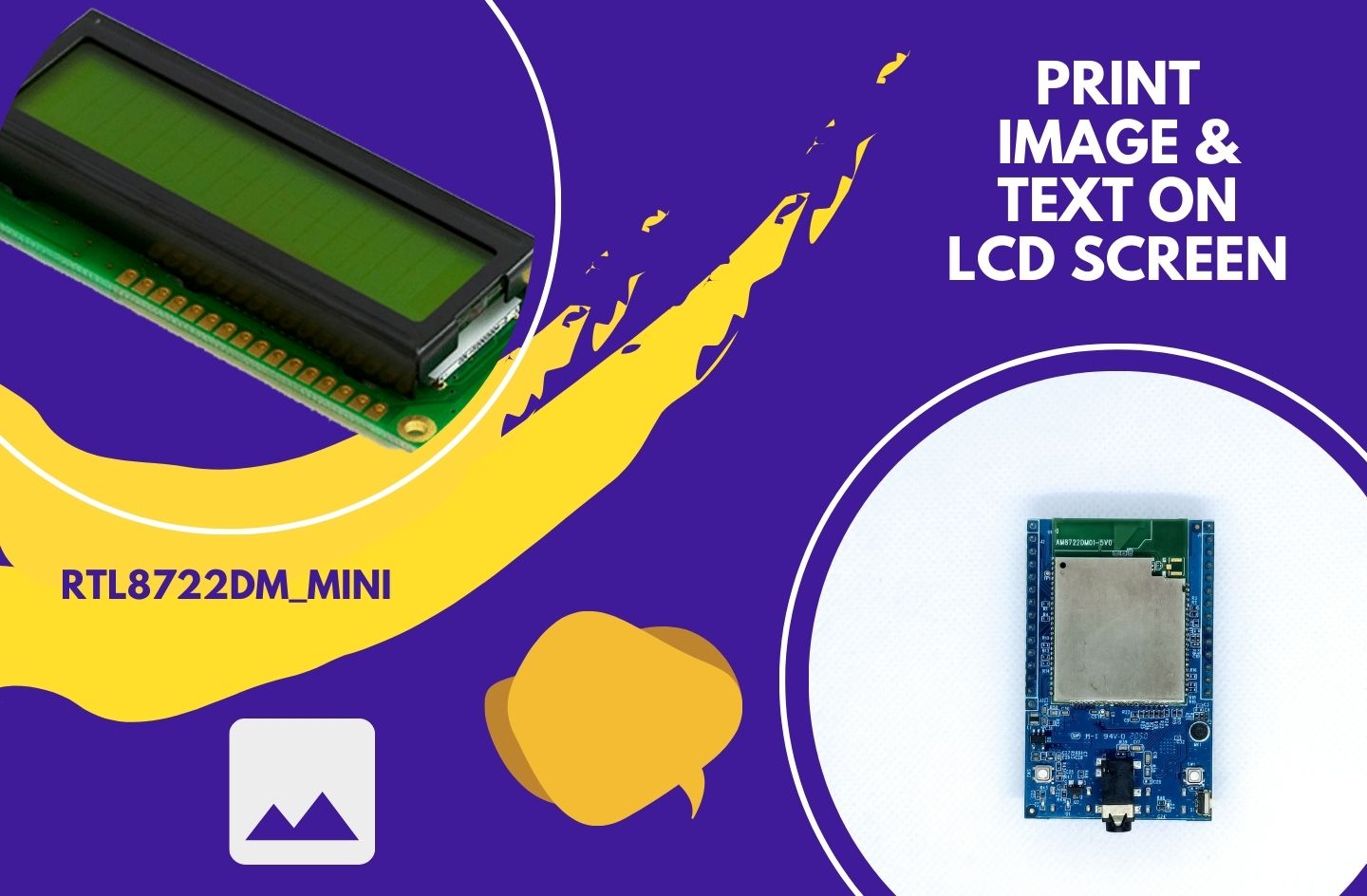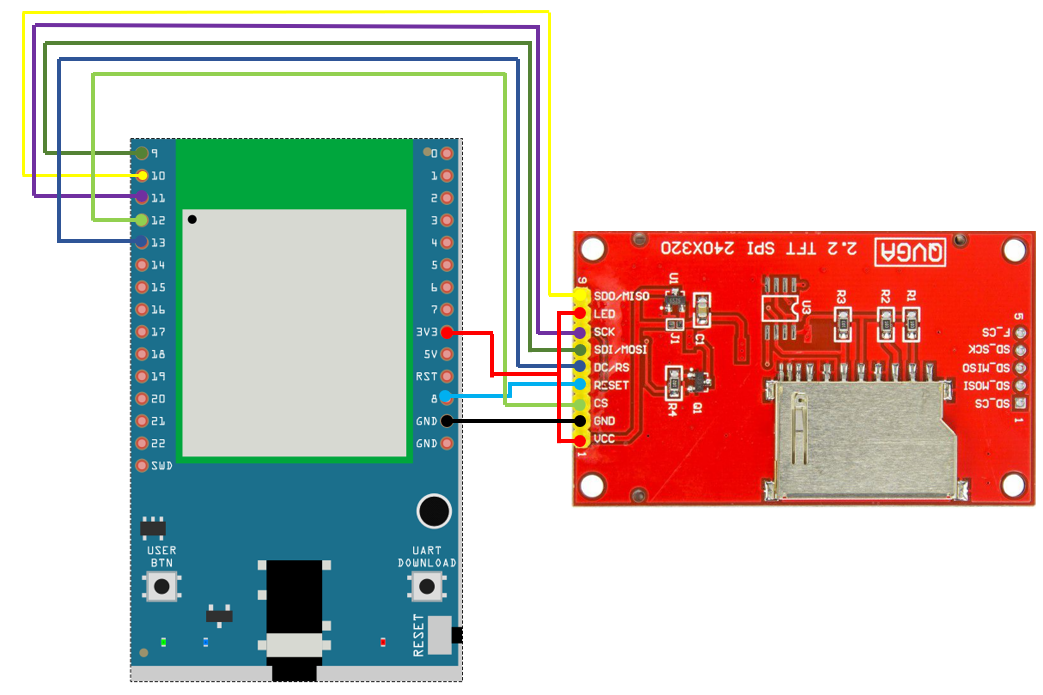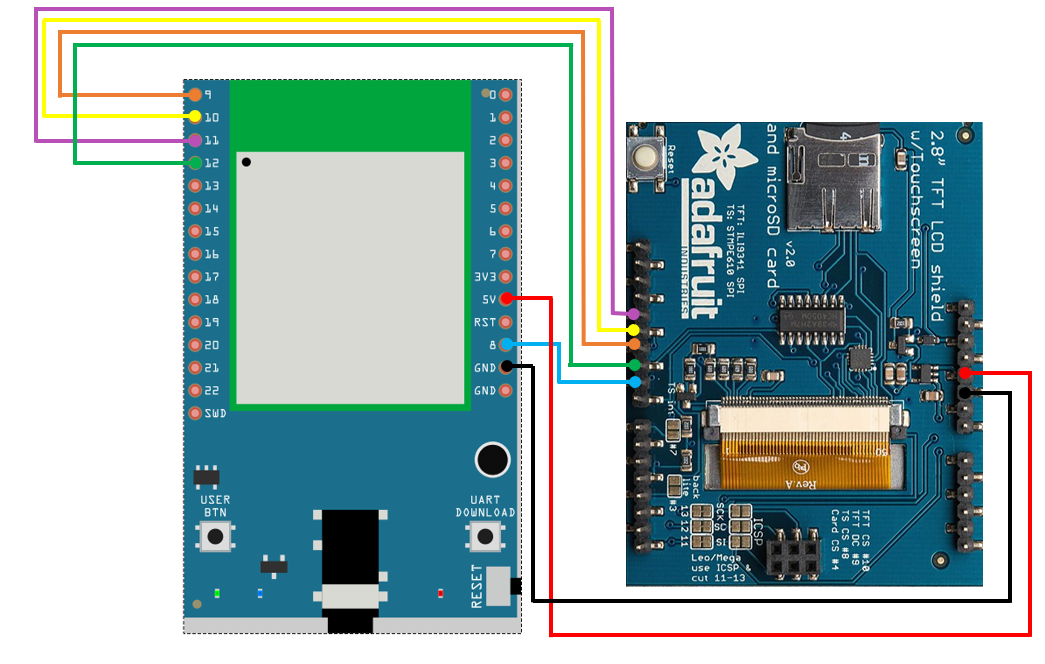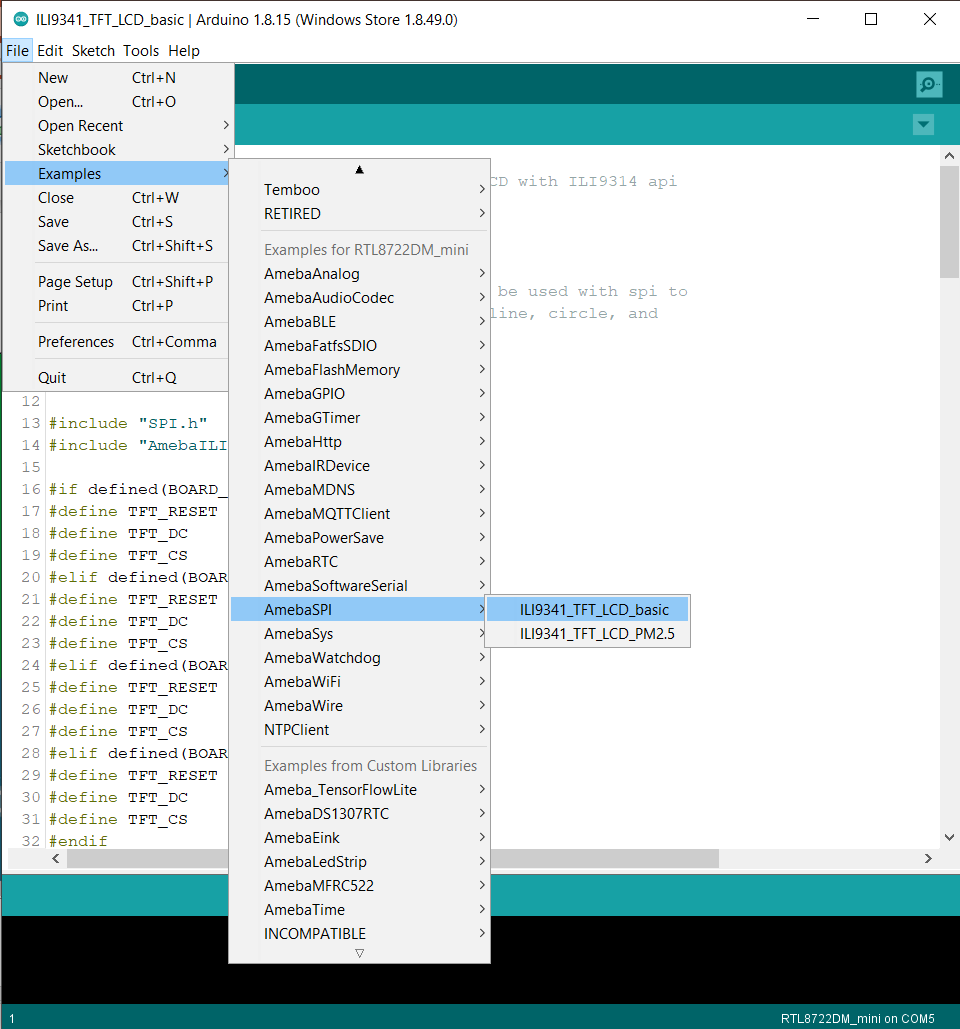TFT means Thin-Flim-Translator. It is technology that is used in LCD or liquid Crystal Display.
Ameba provides SPI pin to connect to high speed SPI devices, such as LCD and camera. These devices would be very slow through other connection interface (e.g., UART, I2C).
SPI devices communicate using a master-slave architecture with a single master.
The SPI interface is consist of four pins:
MOSI: Master Output, Slave Input (output from master).
MISO: Master Input, Slave Output (output from slave).
SCK: Serial Clock, output from master.
CS: Chip Select, also called SS (Slave Select), a SPI Master can be connected to many Slaves. To communicate with a specific Slave, the Master pull the CS pin connected to the Slave to LOW.
AmebaD
Ameba RTL8722DM is a low-power dual-band WLAN and Bluetooth Low Energy SoC by Realtek. The RTL8722DM also include memory for Wi-Fi protocol functions and application making it simple for anyone to develop various kind of IoT applications. At the same time it has a wide range of peripheral interfaces. With all these interfaces, it can connect to most of the electronics components like LEDs, temperature and humidity sensors, and so on.
More Resources:
If you need additional technical documents or the source code for this project. Please visit the official websites and join the Facebook group and forum.
Ameba Official Website: https://www.amebaiot.com/en/
Ameba Facebook Group: https://www.facebook.com/groups/amebaioten
Ameba Forum: https://forum.amebaiot.com/
Setup
Connect up the LCD to RTL8722DM_MINI.
If you are using QVGA TFT LCD:
If you are using Adafruit 2.8" TFT LCD Touch Shield:
Programming
Open the example, “Files” -> “Examples” -> “AmebaSPI” -> “ILI9341_TFT_LCD_basic”
Final result
Compile and upload to Ameba, then press the reset button.
Then you can see some display tests appear on the LCD screen, such as displaying different colors, drawing vertical and horizontal lines, drawing circles, etc....







